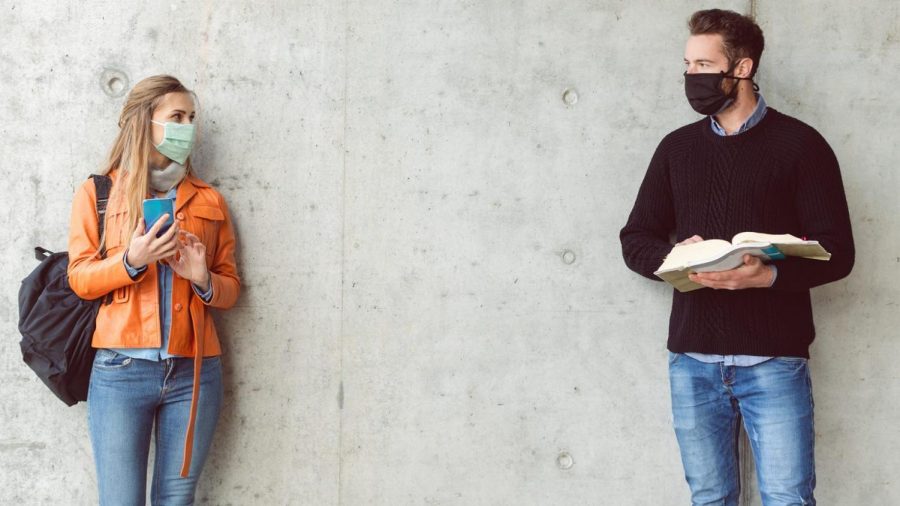Universities and Covid-19
COVID -19 is placing immense pressure on universities worldwide; As of April 8, 2020, tertiary education facilities have been suspended in 175+ countries with mandated lockdowns during quarantine, and colleges moving to remote learning, more than 220 million post-secondary students (13 percent of the estimated number of students impacted worldwide) have had their studies seriously interrupted. In this article, The Talon interviewed a Graded Alumnus and explored the long term impacts of COVID-19 on higher education.
Universities around the world have responded differently to whether they would reopen in the coming months, or if they would remain online indefinitely. Alexandre Jabor, a Graded alumni, attends Amherst College which was “one of the first in the US to shut down and send its students home” due to the imminent pandemic. Like many others, he too decided to leave the campus and go home “only four days after receiving the email announcing the decision to shut down”. On the one hand, universities, such as Cambridge University, have announced that until at least the summer of 2021 its lectures will be only online. Others, however, such as Stanford University, will be offering both online and in-person classes, implementing modifications to its school calendar in order to minimize the number of students on campus at the same time. Alexandre Jabor ended up finishing the second semester of freshman year online, which “was a radical shift from in-person learning.” Yet, Amherst ‘handled the transition exceptionally well” maintaining their level of academic rigor until the end of the semester. Fortunately for Alexandre, “Amherst was able to bring back many of its students for the fall 2020 semester, myself included.” He is currently on campus and explains that he is “taking a mix of online, in-person and hybrid courses”.
The COVID-19 crisis has also had grave economic impacts on higher education. Athletic facilities are empty, gap year numbers are spiking, students are pushing back full tuition fees charges, and dorm rooms are remaining unoccupied. All these factors contribute to a large decrease in university budgets. Furthermore, the drop in income from international students, who usually do not qualify for financial aid, is likely to be painful for many colleges and universities; lowering overall endowment, risking the chance of smaller schools having to close permanently. Most tertiary education institutions face significant financial difficulties as the domestic and foreign economies experience great recessions. According to UN reports, increased unemployment will mean fewer students pursue university degrees and possible gaps in students paying back loans The report also noted more governments will fail to meet obligations to public-funded universities at the required pace.
Many students have reconsidered enrolling, dropping global enrolment numbers by roughly 20%. This decision has been linked to the debate of whether online learning is worth high tuition costs, lack of networking opportunities, and limited social environments. On top of that, for international students, particularly going to the United States, student visas may be harder to obtain. Likewise, this pandemic has changed the college experience of many students. Alexander commented on the measures and restrictions his college has now placed on social interactions aiming to decrease the rate of infection. For instance, its students are “being tested at least 3 times a week” and restraining them to go into residential halls and certain buildings unless they have a course inside. The aspect of social interactions has also been greatly affected due to all the conditions in which they have to follow, “as students tend to spend more time with their rooming bubble group, and professors are not as often on campus.”
In Alexandre’s case, his “school and its administration have shown an impressive level of organization and efficiency in managing the pandemic and giving 12000 students the ability to return to campus safely this semester. The college’s community has also come together during this time and professors even sought after extra training on how to teach students over Zoom and with the use of hybrid learning technologies.” Hence, he stated that “this pandemic has truly reaffirmed my belief that I made the right decision applying and attending Amherst.”
The COVID-19 crisis is expected to cause further rapid and far-reaching shifts in the economy in the future. The outcome of the present situation is having and will continue to have a significant effect on universities and colleges around the world in many respects. It will push higher learning institutions to revisit their business structures, policies, and ultimately how they can plan and successfully deliver higher education. As stated by Said Irandoust, currently a senior adviser for higher education institutions in Jakarta, “Agility, flexibility, and resiliency are not just crucial skills for 21st-century students. They are also vital skills for 21st-century institutions.”
Sources: The Jakarta Post, The Economist, DAAD, World Economic Forum, CDC, IAU

Eva is in her senior year at Graded and is extremely excited to be part of The Talon team for the second time! She is going to be a writer and editor in...










